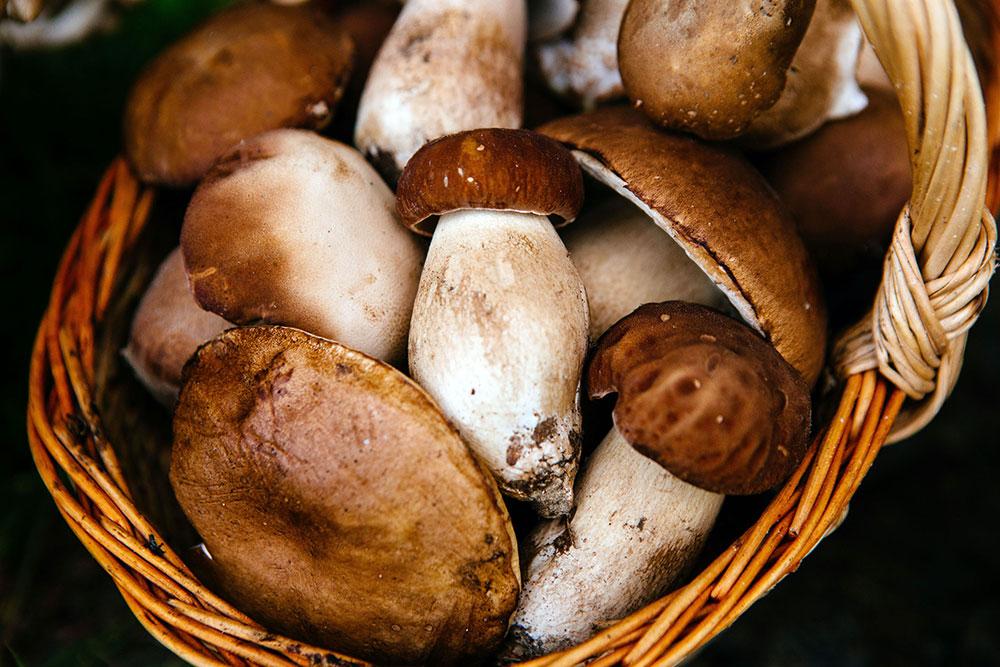
雖然許多植物基人造肉公司都聲稱能夠真正復制出肉的味道,但行業領導者Beyond Meat Inc.和Impossible Foods所銷售的商品大部分都是仿造了碎牛肉或火腿,卻無法模仿一塊完整牛肉的質地。
現在,有一家初創公司想要改變這一切。該公司致力于將蘑菇制成人造肉。Meati Foods公司將使用菌絲體制作肉干、雞胸肉、牛排和熟食肉類。菌絲體是可以讓蘑菇快速生長的一種根部結構。該公司得到了格蘭特?阿卡茲和戴維?巴伯等知名餐廳老板的投資。
Meati的首席執行官及聯合創始人泰勒?哈金斯說:“人類從吃蘑菇開始,就一直在食用菌絲體。菌絲體的優勢在于它的適應性極強。”
某些菌絲體會生長出我們所熟悉的蘑菇菌蓋,而且蘑菇還被用作塑料替代品、運輸材料、房屋隔熱材料和人造皮革等,比如阿迪達斯(Adidas)為支持素食主義推出的明星鞋款Stan Smith的原材料中就使用了蘑菇。
植物基和細胞培養食物倡議組織Good Food Institute的卡羅琳?布什內爾表示,使用蘑菇制作人造肉是一種相對較新的技術,但它的前景一片光明。
布什內爾認為,人造肉公司面臨的最大障礙是完全復制動物組織的質地。這也是Beyond、Impossible和雀巢(Nestle)首先推出漢堡和其他碎肉制品的部分原因。家樂氏(Kellogg Co.)旗下的Morningstar Farms品牌銷售人造肉已經有數十年歷史。該公司經過兩年研發之后最近發布了第一款模仿動物肌肉切塊的產品“雞柳”。
與這些公司相反,Meati的做法是從世界各地的草原收獲生長迅速的菌絲體。然后將蘑菇放入大型金屬發酵罐中。在罐中加糖發酵18個小時,類似于啤酒的釀制過程。最終得到的大塊成品的紋理類似于真實肉類,容易塑形,并且富含蛋白質、鋅、纖維等維生素和礦物質。
彭博行業研究(Bloomberg Intelligence)最近的一份報告顯示,未來十年,人造肉市場的規模預計將從2020年的42億美元增長到740億美元。雖然人造肉市場在1.3萬億美元傳統肉類市場所占的比例不足1%,但分析師、食品公司和投資者都預測該行業將迎來大量發展機會,類似于Beyond Meat在2019年上市和Impossible Foods進入沃爾瑪(Walmart Inc.)等主流超市。
但Meati這些新公司以及另外一家基于菌絲體的人造培根肉公司Atlast,必須與Beyond、Impossible等老牌素食品牌競爭。它們必須想方設法吸引消費者,因為人造肉更高的價格可能令消費者望而止步:美國農業部(USDA)公布的每磅碎牛肉的成本為4.38美元,而每磅Beyond Meat人造肉的成本為8.39美元,Impossible Foods碎肉制品的成本為6.49美元。
Meati現有員工40人,其產品尚未開始進入食品雜貨店銷售。該公司尚未公布定價,但表示其產品的價格將接近于標準動物蛋白制品的價格。該公司已經在當地餐廳開展了初步市場測試,并計劃在2022年全面上市。
Meati于2019年在美國能源部(U.S. Department of Energy)的創業計劃中脫穎而出。哈金斯是一名野外生物學家和環境工程師,公司的另外一位創始人賈斯汀?懷特利是一名訓練有素的材料科學家。兩人共同創立Meati(最初名為Emergy Foods)的初衷,是希望找到一種需要更少化學品和加工的環保肉類替代品。兩人在創業計劃結束后獲得了500萬美元融資,在美國科羅拉多州博爾德建了第一家工廠。該公司到目前為止沒有任何收入。其在7月完成了5000萬美元B輪融資。
哈金斯表示,公司的目標群體不只是素食主義者和具有環保意識的群體。他希望人們選擇他的產品,是因為他的產品比傳統動物肉類更受消費者喜愛。
他說:“據我所知,我們的Meati牛排在堪薩斯農村的一家餐廳很受歡迎。和其他所有人一樣,他們認為這款產品就是為他們而造的,他們看到了它的價值,并且認為它味道鮮美。”(財富中文網)
翻譯:劉進龍
審校:汪皓
雖然許多植物基人造肉公司都聲稱能夠真正復制出肉的味道,但行業領導者Beyond Meat Inc.和Impossible Foods所銷售的商品大部分都是仿造了碎牛肉或火腿,卻無法模仿一塊完整牛肉的質地。
現在,有一家初創公司想要改變這一切。該公司致力于將蘑菇制成人造肉。Meati Foods公司將使用菌絲體制作肉干、雞胸肉、牛排和熟食肉類。菌絲體是可以讓蘑菇快速生長的一種根部結構。該公司得到了格蘭特?阿卡茲和戴維?巴伯等知名餐廳老板的投資。
Meati的首席執行官及聯合創始人泰勒?哈金斯說:“人類從吃蘑菇開始,就一直在食用菌絲體。菌絲體的優勢在于它的適應性極強。”
某些菌絲體會生長出我們所熟悉的蘑菇菌蓋,而且蘑菇還被用作塑料替代品、運輸材料、房屋隔熱材料和人造皮革等,比如阿迪達斯(Adidas)為支持素食主義推出的明星鞋款Stan Smith的原材料中就使用了蘑菇。
植物基和細胞培養食物倡議組織Good Food Institute的卡羅琳?布什內爾表示,使用蘑菇制作人造肉是一種相對較新的技術,但它的前景一片光明。
布什內爾認為,人造肉公司面臨的最大障礙是完全復制動物組織的質地。這也是Beyond、Impossible和雀巢(Nestle)首先推出漢堡和其他碎肉制品的部分原因。家樂氏(Kellogg Co.)旗下的Morningstar Farms品牌銷售人造肉已經有數十年歷史。該公司經過兩年研發之后最近發布了第一款模仿動物肌肉切塊的產品“雞柳”。
與這些公司相反,Meati的做法是從世界各地的草原收獲生長迅速的菌絲體。然后將蘑菇放入大型金屬發酵罐中。在罐中加糖發酵18個小時,類似于啤酒的釀制過程。最終得到的大塊成品的紋理類似于真實肉類,容易塑形,并且富含蛋白質、鋅、纖維等維生素和礦物質。
彭博行業研究(Bloomberg Intelligence)最近的一份報告顯示,未來十年,人造肉市場的規模預計將從2020年的42億美元增長到740億美元。雖然人造肉市場在1.3萬億美元傳統肉類市場所占的比例不足1%,但分析師、食品公司和投資者都預測該行業將迎來大量發展機會,類似于Beyond Meat在2019年上市和Impossible Foods進入沃爾瑪(Walmart Inc.)等主流超市。
但Meati這些新公司以及另外一家基于菌絲體的人造培根肉公司Atlast,必須與Beyond、Impossible等老牌素食品牌競爭。它們必須想方設法吸引消費者,因為人造肉更高的價格可能令消費者望而止步:美國農業部(USDA)公布的每磅碎牛肉的成本為4.38美元,而每磅Beyond Meat人造肉的成本為8.39美元,Impossible Foods碎肉制品的成本為6.49美元。
Meati現有員工40人,其產品尚未開始進入食品雜貨店銷售。該公司尚未公布定價,但表示其產品的價格將接近于標準動物蛋白制品的價格。該公司已經在當地餐廳開展了初步市場測試,并計劃在2022年全面上市。
Meati于2019年在美國能源部(U.S. Department of Energy)的創業計劃中脫穎而出。哈金斯是一名野外生物學家和環境工程師,公司的另外一位創始人賈斯汀?懷特利是一名訓練有素的材料科學家。兩人共同創立Meati(最初名為Emergy Foods)的初衷,是希望找到一種需要更少化學品和加工的環保肉類替代品。兩人在創業計劃結束后獲得了500萬美元融資,在美國科羅拉多州博爾德建了第一家工廠。該公司到目前為止沒有任何收入。其在7月完成了5000萬美元B輪融資。
哈金斯表示,公司的目標群體不只是素食主義者和具有環保意識的群體。他希望人們選擇他的產品,是因為他的產品比傳統動物肉類更受消費者喜愛。
他說:“據我所知,我們的Meati牛排在堪薩斯農村的一家餐廳很受歡迎。和其他所有人一樣,他們認為這款產品就是為他們而造的,他們看到了它的價值,并且認為它味道鮮美。”(財富中文網)
翻譯:劉進龍
審校:汪皓
While plenty of plant-based meat companies claim to replicate the taste of the real thing, industry leaders like Beyond Meat, Inc. and Impossible Foods mostly sell products that mimic ground beef or sausages, rather than the texture of a whole cut.
Now, a new startup focused on mushrooms wants to change that. Meati Foods, backed by famous restaurateurs like Grant Achatz and David Barber, is using mycelium, the vegetative root of a fungi to make jerky, chicken breast, beefsteaks, and deli meat.
“We’ve been eating mycelium ever since we’ve been eating mushrooms,” said Meati Chief Executive Officer and Co-Founder Tyler Huggins. “The advantage of mycelium is it’s very adaptable. ”
While some strains of mycelium grow the familiar mushroom caps, the fungi has also been used as plastic replacements, shipping material, housing insulation, and fake leather—like in the vegan style of Adidas’ signature Stan Smith shoe.
Using the substance for alternative meat is a relatively new practice but it shows promise, said Caroline Bushnell of Good Food Institute, an organization that advocates for plant-based and cell-based foods.
Properly replicating the texture of animal tissue is the biggest obstacle for fake meat companies, Bushnell said. That’s partly why market leaders like Beyond, Impossible and Nestle first tackled burgers and other ground meat products. Kellogg Co., whose Morningstar Farms brand has been selling alternative meat for decades, only just released its first muscle cuts, “chik’n tenders,” after more than two years of development.
By contrast, Meati harvests a fast-growing strain of mycelium from grasslands around the world. Then, it places pieces of the fungi in big metal tanks. The company adds sugar to the tanks and lets the substance cultivate for 18 hours in a process similar to brewing beer. The outcome: easily-moldable chunks that mimic the texture of real meat, packed with protein, zinc, fiber, and other vitamins and minerals.
In general, the alternative meat market is projected to grow from $4.2 billion in 2020 to $74 billion in the next ten years, according to a recent Bloomberg Intelligence report. Making up less than 1% of the $1.3 trillion conventional meat market, analysts, food companies, and investors foresee growth opportunities akin to Beyond Meat’s 2019 public listing and Impossible Foods Inc.’s entry into mainstream stores like Walmart Inc.
But upstarts like Meati—and mycelium-based bacon competitor Atlast—have to fight for shelf space alongside Beyond, Impossible and other established vegan brands. And they have to woo consumers who may be put off by higher price tags of fake meat: USDA ground beef costs $4.38 per pound, compared to $8.39 a pound of Beyond Meat and $6.49 of Impossible Foods ground meat product.
Meati, a 40-person company that hasn’t sold into grocery stores, said it hasn’t set prices yet but aims to offer a more affordable price point akin to standard animal protein products. The company has conducted preliminary market testing in local restaurants and plans to reach wider audiences in 2022.
Meati emerged from a U.S. Department of Energy entrepreneurship program in 2019. Huggins, a field biologist and environmental engineer, and his co-founder Justin Whiteley, a trained material scientist, started Meati, then called Emergy Foods, in pursuit of finding an environmentally-friendly meat substitute that required fewer chemicals and less processing. Following the program, the pair secured $5 million in funding to build an initial plant in Boulder, Colorado. The company, which doesn’t have any revenue yet, closed a $50 million round in Series B financing in July.
Huggins said his company aims to go beyond vegans and environmentally conscious eaters. He wants people to choose his product because they prefer it over traditional animal meat.
“I know we’re successful when our Meati steaks are served at a diner in rural Kansas,” he said. “They’ve understood this product is for them just like anybody else, and they see the value and they think it’s delicious.”






